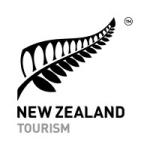Waka embark on historic Pacific voyage
Pacific maritime history floated to the fore on Auckland’s Waitemata Harbour yesterday (15.4.11) as a fleet of traditional waka prepared to set sail on a 27,000km ocean voyage that will carry a modern message via ancient means.
After a blessing ceremony in the city’s Viaduct Harbour, the five waka, or traditional twin-hulled canoes, sailed to Devonport awaiting the right winds to begin the first leg of their historic journey.
The 16-person crews, all of Māori and Polynesian descent, will spend up to 16 months at sea retracing the journeys of their ancestors and using the same methods to navigate and propel their craft.
As well as recapturing the traditional voyages of the Pacific, they aim to raise awareness of issues threatening the ocean and its island inhabitants.
Traditional design
The eco-friendly waka mostly rely on wind and solar power but unlike the vessels of old, these are fitted with GPS, VHF radio and a satellite phone.
However, the cramped and basic accommodation on the 22-metre craft was highlighted as the fleet bobbed beneath luxury apartments and navigated between super yachts before leaving the Viaduct Harbour.
With no refrigeration, the crew will live on canned and dried food, and rely on their fishing lines for fresh food.
Crews have been preparing for the voyage for three years and face many challenges including cold temperatures, sea sickness and steering their waka by paddle.
Cultural advisor Hoturoa Barclay-Kerr says the waka battled eight-metre swells and unpredictable winds during an eight-month trial last year, and that would be an issue to contend with.
Working together
Crew would not only have to maintain their sea legs but also work together, though the years of preparation ensured they were familiar enough with each other to avoid confrontation in the cramped sleeping quarters, he said.
The five waka will voyage across the Pacific to Hawaii via French Polynesia (the Tuamotus and Marquesas) meeting up in Tahiti with two more waka from the Cook Islands and Tahiti.
They are expected to be in Hawaii by June, and won’t return to New Zealand until 2012.
As part of the voyage, the seafarers will attend a conference in Hawaii on the costs of global warming and hope to strengthen links between Pacific Island neighbours.
Documentary film
The voyage will be the subject of a documentary film, and Dieter Paulmann, the film's executive producer, will travel along with them.
"We are embarking on an extraordinary journey that brings together culture and consciousness as never before. For the first time ever, seven Pacific Island crews will sail a fleet of traditional Polynesian voyaging canoes (equipped with solar powered motors) across thousands of miles of open ocean.
"They'll map their way in the wake of their ancestors, using the stars, sun, wind, and wildlife as their guides. As we travel along will them, we come to experience first-hand, the power and the plight of our greatest ocean - the Pacific," said Paulmann.
The film is scheduled for release in 2013.
Auckland sailing experience
Visitors to Auckland can sail on the traditional Maori waka Te Aurere - a unique cultural experience that includes learning about New Zealand’s Māori people, the history of migration to New Zealand, traditional methods of navigation and waka design - as well as offering hands-on experience with the opportunity to steer the boat and trim sails.
Te Aurere is captained by Stanley Conrad one of the foremost captains of traditional ocean-going, double-hull canoes in the Pacific and the most experienced captain of the vessels in New Zealand.
Conrad has been named a member of Auckland's 'Team 2011' for the Rugby World Cup later this year. Team 2011 is an exclusive group of Aucklanders recognised for their contribution to the Rugby World Cup.
Conrad is a keen rugby fan and says he is looking forward to giving visitors to Auckland a unique sailing experience on Te Aurere during the event.
"It's about telling our story and allowing others the chance to see how the Polynesian people used to travel," he says.
